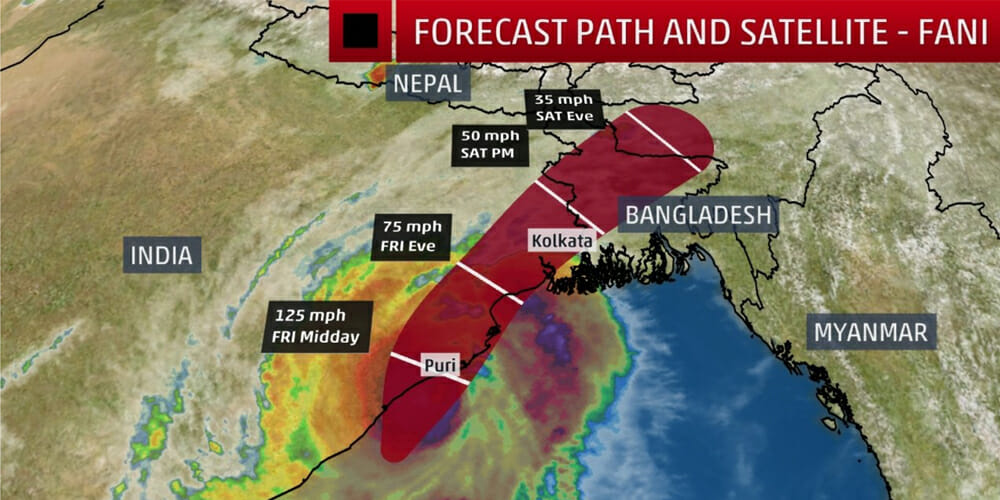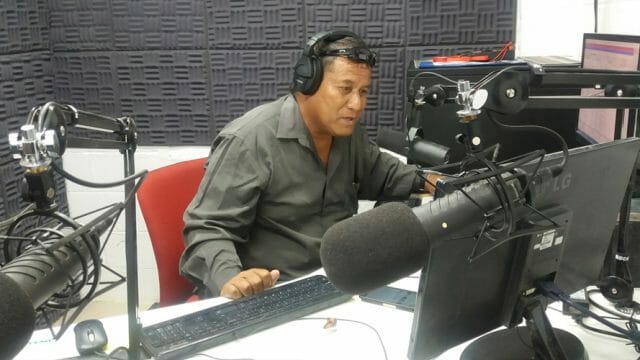ADRA is monitoring the situation as Cyclone Fani makes landfall.

Cyclone Fani (pronounced “foe-nee”), a severe cyclonic storm formed in the Bay of Bengal with wind gusts of up to 130 miles per hour (215 kilometers per hour), is heading to the eastern coast of India. The storm is forecast to gain strength before it moves on a projected path across Bangladesh by Saturday, May 4, 2019.
“ADRA is monitoring and preparing for Cyclone Fani, which has intensified and is expected to make landfall at Odisha state in India,” said Mario Oliveira, emergency management director for the Adventist Development and Relief Agency. “ADRA in India is expected to arrive in Bhubaneshwar on May 2. While there, we’ll be working closely with local authorities to assess damages and needs once the storm passes.”
According to local news reports, the storm could affect areas of Bangladesh including Khulna, Satkhira, Bagerhat, Pirojpur, Patuakhali, Barguna, Chittagong, and Cox’s Bazar.
Oliveira said that storms regularly hit eastern and southeastern India between April and December. Cyclone Titli, a devastating storm that struck India in 2018, killed more than 200 people in Tamil Nadu and Kerala states. The worst-ever cyclone to hit India occurred in 1999 and killed more than 8,000 people.
“ADRA responded to Cyclone Titli last year in the Kerala state, and we are ready to respond to Cyclone Fani,” Oliveira said. Local authorities in the areas of Andhra Pradesh, Odisha, and East Bengal, India are taking necessary precautions to evacuate residents ahead of the impending storm, which is predicted to bring heavy rainfall, strong winds, and storm surge.
Already, the State Minister of Bangladesh has asked that schools, colleges, and other educational institutions be used as temporary means of shelter, according to news reports. More than 870 shelters in the Indian state of Odisha are being made available to accommodate around one million people.
“Cyclone Fani will have an impact because the storm will be going through Bangladesh, a high-density populated region,” Oliveira said.
More information will be provided as it is made available.
The original version of this story appeared in the ADRA Press Room.








